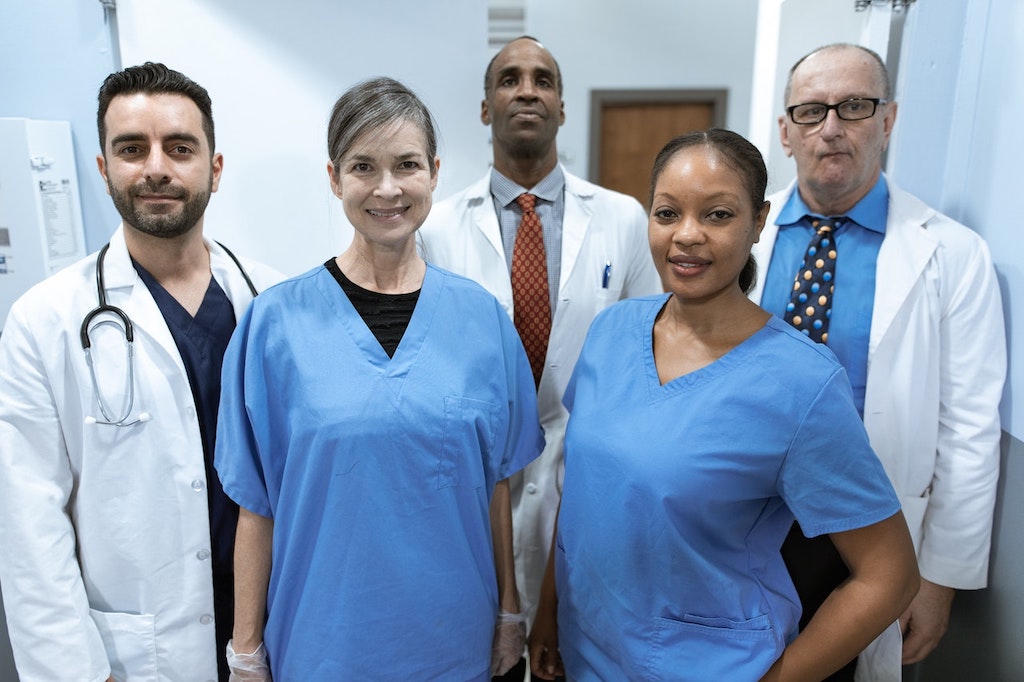
When most people are asked where registered nurses work, they will likely answer in the hospital or a clinic. While both of these answers are true, registered nurses work in different settings, environments, and specialties. This is mainly because there are lots of nursing specialties. This variety is great for those who are considering becoming nurses and are not interested in working in a hospital setting. Here are 10 surprising workplaces of a registered nurse.
Patient’s Homes
Apart from hospital and clinic settings, numerous nurses work in patients’ homes. These nurses provide care to the elderly, patients with disabilities, or those who need extra care for a variety of reasons.
These nurses help provide assistance and teach basic care and living skills, administer medications, and help the people they care for handle bodily functions. This option is great for nurses who value personal connections and who genuinely want to improve the lives of others.
Camps
Accidents and medical emergencies can happen in summer camps and so these camps employ nurses to help them feel safe and provide care when it is required. This is a unique opportunity for nurses who love the outdoors, working with kids, and new nurses who want to develop their skills fast and gain some skills in a different setting.
Schools
Although many educational facilities hire nurses, this is an option that a lot of nurses do not usually consider. Nurses are needed at different education levels where they are tasked with giving basic care and first aid, taking vitals, and facilitating the transfer of learners to a hospital or other healthcare facility if they need urgent care.
Working at a school is highly rewarding, especially for nurses who love working with kids and teenagers. It is also a great option for nurses who love working regular working hours and a variety of tasks and challenges in the workday.
To get hired as a school nurse, you need to have a Bachelor’s of Science in Nursing (BSN) degree and be certified to work in the state the school is located in. If you already have another degree and want to pivot into nursing, you can also enroll for accelerated BSN programs online. These programs are great for those who have a non-nursing degree but want to gain clinical skills and experience that they can also use to explore other career opportunities.
Teaching
Nurses who hold a master’s degree can opt to become nurse educators. These nurse educators can be employed in hospital and clinical settings or academic institutions. In the hospital and clinical settings, they are responsible for teaching the practical aspects of being a nurse. In academic settings, they are tasked with instruction and teaching nurses everything they need to become nurses. In some cases, they may also act as mentors, helping guide new nurses along their new career paths.
Correctional Facilities
The number of inmates in correctional facilities is increasing and as it does, so does the demand for qualified healthcare professionals to provide care to these inmates. Nurses who work in correctional facilities handle a wide range of medical issues and might require special training before working in this setting. Working in a correctional facility is especially challenging because of the potential risk this work poses and the types of patients that nurses have to deal with. Nurses, therefore, have to be very resilient and have a genuine need to care for potentially dangerous patients.
Emergency Transport
Emergency transport vehicles such as ambulances and helicopters need nurses to accompany patients en route to a hospital or other healthcare facility. Nurses working in these settings often deal with life-threatening and very challenging conditions. This makes their work a lot harder so this setting requires nurses who can think fast, can provide solutions to a variety of emergencies, and remain calm under chaotic conditions and lots of pressure.
Publication, Writing, and Consulting
Although uncommon, nurses who want to take their careers in another direction can move into publication and writing. In this role, they write, edit, and proofread technical material meant for publication. This can be a textbook, research project, or any other area they can lend their skills and knowledge.
Nurses have also been hired as consultants during the writing of movies and television shows. In this role, they help ensure the script is accurate and help prep actors who play nurses to be better prepared for their roles.
Forensics
Forensic nursing is a specialized area of nursing that focuses on those affected by violence. This can include gunshot wounds, sexual violence, child abuse, and physical assault. Forensic nurses will often collect evidence and do a forensic-medical exam if a victim of violence decides to report their assault to law enforcement. All the evidence they collect is handed over to law enforcement so they can build a case.
In some cases, forensic nurses can also provide expert testimony in court and might be involved in providing judicial recommendations if they are experienced enough. This often happens in cases of sexual assault, elder mistreatment, child abuse, domestic violence, and death investigations.
Forensic nurses also provide comfort and support to victims of violence.
Quality Review
Quality review nurses work with insurance companies, medical centers, hospitals, and other medical facilities to ensure the care provided is of the highest quality. They also manage all insurance issues so that all services given to patients are paid for and are vital in the prevention of insurance fraud in the healthcare facilities they work for.
War Zones and Military Bases
Military nurses are employed with the armed forces and operate out of military bases and war zones. Military nurses serve their country while taking care of others in battle or on military bases. In many cases, these nurses are not put in dangerous positions so they can do their work while enjoying other cultures and places around the globe.
If you want to become a military nurse, you need to keep up the high standard expected of individuals in the military branch you will be working with. This is on top of being a qualified, registered, and certified nurse.
Nursing is such a rewarding career path to follow due to the numerous opportunities it offers you. Depending on your qualifications, you can work in lots of settings, both inside and outside healthcare facilities, with this flexibility working as a very strong incentive for lots of people considering a career in nursing.







